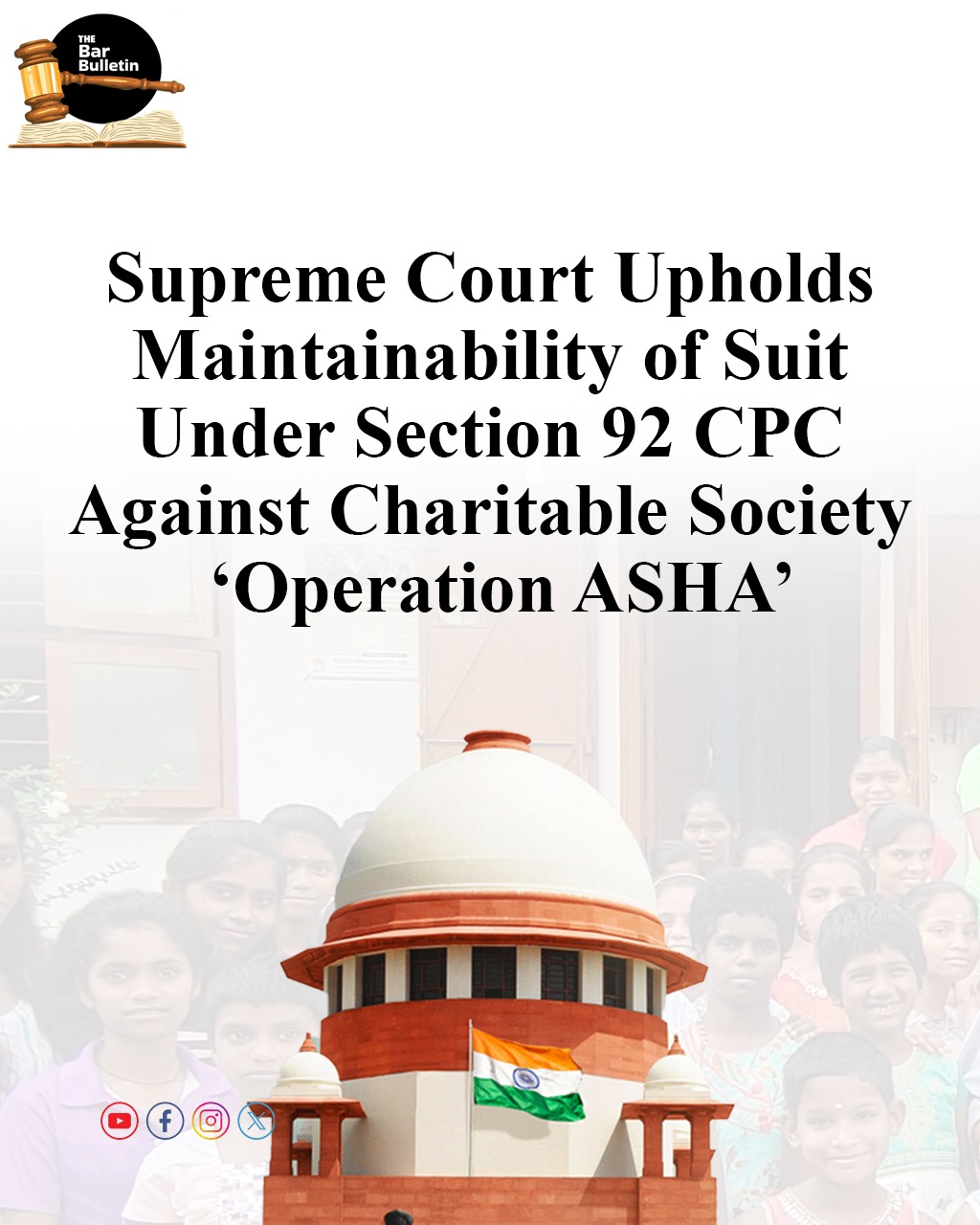The Supreme Court upheld the Delhi High Court’s order allowing a suit under Section 92 of the Code of Civil Procedure, 1908 (CPC) against the not-for-profit organisation, Operation ASHA, a society registered under the Societies Registration Act, 1860.
The dispute arose after Dr. Shelly Batra, a co-founder and former President of Operation ASHA, along with her mother Usha Gupta, filed a suit under Section 92 CPC before the Delhi High Court alleging financial misappropriation, gross mismanagement, and breach of the society’s by-laws by other office-bearers, including co-founder and CEO. They sought reliefs including declarations, injunctions, removal of board members, rendition of accounts, and reformation of the society’s bye-laws to prevent monopolistic control.
The core issue was whether a registered society performing public charitable functions could be brought within the purview of Section 92 CPC, usually reserved for public trusts, and whether its Board members held the society’s property in a fiduciary capacity.
A Single Judge of the Delhi High Court granted leave under Section 92 CPC to institute the suit, holding that the society was engaged in public charitable work, particularly health services for the underprivileged, and it functioned effectively as a constructive trust as donor funds were “entrusted” for a public purpose. The court observed that the plaintiffs had sufficient interest in the society and the reliefs fell within the scope of Section 92 CPC. This decision was upheld by a Division Bench of the same Court and subsequently challenged before the Supreme Court.
In a comprehensive ruling, the Supreme Court Bench comprising Justice J.B. Pardiwala and Justice R. Mahadevan affirmed the High Court’s findings, holding that a registered charitable society, though not formally a “trust” or a corporation, could be treated as a “constructive trust” owing to its objectives and the fiduciary character of its Board members’ role. The Court found that the property and funds donated to the society for public benefit were indeed impressed with public trust character, and registration under the Societies Registration Act does not by itself exclude a society from the operation of Section 92 CPC.
The Bench clarified that, at the leave stage under Section 92, the court only examines prima facie satisfaction of the statutory conditions, without delving deeper into a determination of ultimate guilt or breach. It is sufficient that the plaint contains credible allegations and seeks reliefs of public or representative character.
The Court also held that both plaintiffs had a demonstrable interest in the society, and even if one did not sign the plaint, such technicalities could not defeat the substantive purpose of public interest litigation.
The Court thus dismissed the appeal, directing that the suit may proceed to trial on merits before the High Court. The decision expands, clarifies, and modernizes Indian public trust law, underscoring that Societies cannot circumvent scrutiny for public mismanagement by invoking technical arguments about their legal form.
Appearances:
Appellant (Operation ASHA): Senior Advocate Dama Seshadri Naidu with Advocates Bishwajit Dubey, Radhika Bishwajit Dubey, Karan Khetani, Umesh Dubey, Madhulika, Vuzmal Nehru and Manoj Mishra
Respondent (Dr Shelly Batra): Advocate Jai Anant Dehadrai and Pulkit Agarwal
![]()

